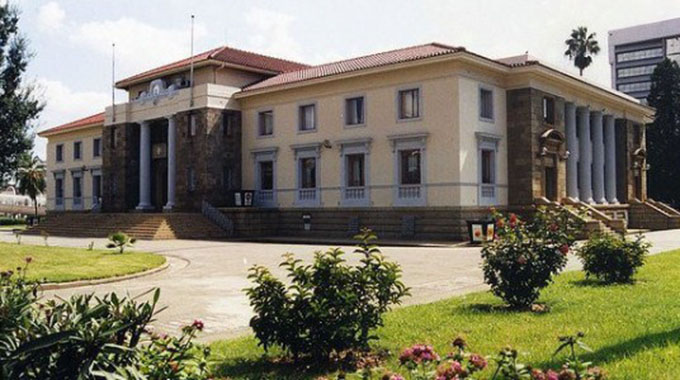Editorial Comment: Harare city must learn from Bulawayo

Harare has been hit by a second major cholera outbreak in a decade although this time the emergency was declared within a couple of days of the Government finding out and resources — national, local and private — are being mobilised.
But it should not have happened and the Harare City Council needs to take steps to prevent future outbreaks. There will probably be the odd case as people travel around and bring the disease into their community.
Preventing cholera is simple. You keep sewage and water supplies separate, avoid consuming infected water and food and ensure that any infection does not spread beyond a single household.
Zimbabwe’s second city, Bulawayo, provides the great example. Even when the 2008 epidemic was ranging across the country, the province with easily the lowest number of cases was Bulawayo. And while it is taking precautions this time around, it again expects that it can contain any problem that a sick visitor may bring into the city.
This is because Bulawayo, a poorer city than Harare and one with far less water per resident, has had a culture for many decades, stretching right back into colonial times, of expecting that its municipal officials are the best in Zimbabwe and that city councils, good and bad, will listen very carefully to recommendations from these officials and be very reluctant to overrule them.
So the policy is to ensure that everyone has access to clean and safe water and that when rationing is necessary, this is done fairly without any person or area getting a better deal and without anyone being left out. So when a drought hits Matabeleland, Bulawayo moves into gear and ensures that every household, regardless of where they live or how rich or poor they are, gets water supplies every other day, with the days and times fixed in advance and well publicised.
So even in the worst drought and water shortage, everyone in the city has adequate access to clean and safe water. And pipe bursts and blocked sewers are attended to promptly.
The other potential health danger and public nuisance, vending, has also been sorted out. Bulawayo City Council recognised the social need for many to scratch a living in the informal sector, but also recognised the dangers.
So it commanded its pool of expert officials to come up with a working scheme. They did. Bulawayo must have as many vendors in proportion to its population as Harare, but every single one is licensed. Licences are neither difficult to obtain nor expensive.
But a licensed vendor is assigned a patch and conditions are set, including critically keeping that same patch clean and using an assigned near-by public lavatory. In those central business district blocks where a high density of vendors are permitted, extra public toilets were built.
Vendors can sell just about anything legal, except food. While food vendors are not banned there are a raft of extra-stringent conditions including health tests that very few even try to qualify. So health risks are almost eliminated, the nuisance is minor and a lot of families have a basic income.
Contrast this to Harare. Limited water supplies are distributed very unfairly. Some have continuous supplies, some have intermittent supplies, but without a proper scheme of set days and times and many get nothing. Pipe bursts can take weeks to repair and it was a blocked sewer in Glen View discharging filth for weeks that contaminated even underground water supplies and triggered this latest cholera outbreak.
Harare vendors are either permitted to operate in a free-for-all, although some self-regulation helps, or are blitzed as some sort of commercial evil, or are promised in some never-defined future that they will all be moved to some open space far from customers and toilets.
And a significant minority are food vendors who operate without checks and with the only control being the good sense of them and their customers. And some people do not have good sense.
As Harare has not totally collapsed, there must be a core of municipal officials who know what they are doing. The city council needs to listen to this core, ask the right questions, take their advice and implement processes that work.
Even smarter would be to ask and beg if necessary, Bulawayo City Council to second a couple of senior officials with the right experience and background to come to Harare and supervise the setting up of similar schemes to their own.
Bulawayo could spare them for a month or two as in one of the aspects of that culture of competence most critical senior staff are backed up by a high-quality subordinate who can take over instantly in the event of retirement, illness, death, vacation or, in this case, a long trip to Harare.









Comments